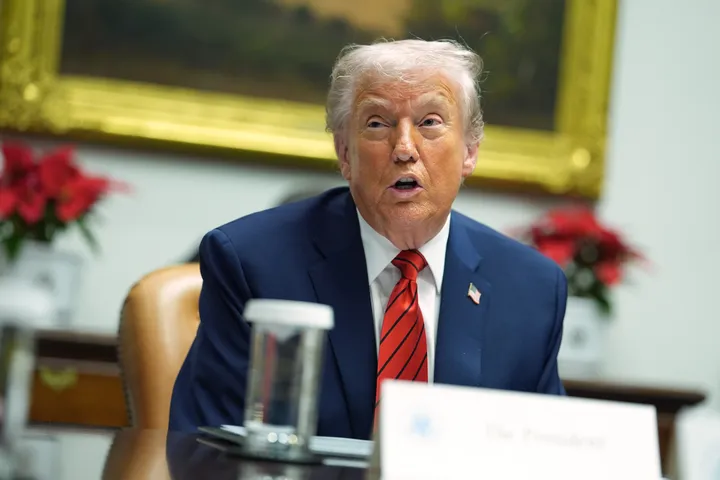As Russia announces further cuts to its gas supply to Europe, analysts fear that shortages this winter could reinvigorate populists and anti-EU sentiment across the bloc, if citizens struggle to heat their homes and industrial production plummets, deepening the ongoing economic crisis.
The price of natural gas has shot through the roof since the start of the conflict in Ukraine, hitting consumers and prompting most European governments to introduce cost of living subsidies.
Amid the prospect of an energy shortage forcing Europe to ration its supply this winter, the European Commission presented a plan on Wednesday to cut gas use across the EU by 15 percent until next spring. The target would be voluntary, but the new regulation also gives the EU the power to declare an emergency and make it mandatory.
Russia’s state-owned energy company Gazprom told Germany’s biggest importer of Russian gas, RWE, it will not be able to fulfill contract obligations due to “force majeure”. Gazprom had already reduced gas provision to Germany through the Nord Stream 1 pipeline by 60 percent last month.
The Nord Stream 1 pipeline reopened on Thursday after scheduled maintenance, but is expected to operate at reduced capacity.
“Russia plays a strategic game. Keeping low flows is better than cut-off. It decreases our resolve to reduce gas demand. We must not fall into the trap and go [into] crisis mode anyhow,” said Simone Tagliapietra, senior fellow at the Brussels-based think tank Bruegel.
Russia has denied attempting to exert pressure on the EU by using gas as leverage over its sanctions on Ukraine. However, the European Energy Agency (EEA) reports that due to the increase in gas prices following Russia's attack on Ukraine, its revenue from European gas alone has increased by two times the average over the past several years, reaching $95 billion. Analysts fear the additional revenue could make it easier for Russia to shut the supply entirely to put pressure on the bloc.
“If Russia decides to completely cut off gas supplies before Europe can get its storage levels up to 90 percent, the situation will be even more grave and challenging,” EEA head Fatih Birol wrote this week.
“European leaders need to be preparing for this possibility now to avoid the potential damage that would result from a disjointed and destabilising response,” he said, adding this coming winter will be a “historic test of European solidarity.”
Can Europe do without Russian gas?
Earlier this year, the EU drafted a €300bn plan, called REPower EU, where it set out a series of long-term and short-term measures aimed at weaning itself off its energy dependence on Russia. In 2021, Russia supplied about 40 percent of Europe’s gas.
As part of the short-term measures set out in the plan, the EU committed to filling gas storage facilities up to at least 80 percent of capacity by November 2022.
EU leaders have been in talks for gas supplies with Norway, Israel, Egypt, the United States and Qatar. Earlier this week, EU Commission President Ursula Von Der Leyen flew to Azerbaijan’s capital Baku to hatch a deal to increase gas exports to the European Union. It resulted in a memorandum of understanding that aims to double the capacity of the Southern Gas Corridor – a series of pipelines transporting gas from the Caspian Sea to Europe - to deliver at least 20 billion cubic metres a year by 2027.
But that is only a small fraction of the 155 bcm that Russia provided to Europe in 2021.
“If Russia stops selling gas today, there is no way that we can make it through the winter without rationing,” Matteo Villa, an analyst at the Italian Institute for International Political Studies (ISPI) told TRT World. “Actually, rationing should start now if we want to be a bit comfortable and not have families struggle.”
The International Monetary Fund (IMF) said alternative sources could replace up to 70 percent of Russian gas for about six months, but warned that a longer shut-off would lead to significant shortages across the continent. Hungary, Slovakia and Czechia could face a 40 percent shortage, resulting in a contraction of up to 6 percent of their GDP. Italy, Austria and Germany would also be significantly affected.
Scramble for gas
While the EU reached a gas deal with Norway to increase gas supply, data based on the European Network of Transmission System Operators for Gas (ENTSOG) shows gas flows from Norway to the EU 27 haven’t significantly changed since the start of the crisis. Earlier in July, they dropped when oil and gas workers went on strike over a pay dispute earlier this month.
The same goes for Algeria, which this week reached a deal to supply Italy with an additional 4BN cubic meters of gas. Algeria had already significantly boosted gas deliveries to Italy, replacing Russia as its biggest gas supplier.
But Algeria is also simultaneously reducing exports to Spain, after last November it closed the pipeline connecting through Morocco, in retaliation for Spain’s recognition of Moroccan sovereignty over Western Sahara.
“In a context of EU scarcity, you should not just look at exports to Italy, you should look at how much Algeria is exporting to the whole continent,” Villa told TRT World.
According to the data, gas exports to EU countries overall have actually decreased by 20 percent in the first half of 2022.
“What's being played out in Algeria is possibly, on a smaller scale, what we could see play out at the EU level come September, October,” Villa said.
“Algeria is switching exports from Spain to Italy and then claiming that they increased exports while it is in fact not true,” he added.
“So Spain is forced to import LNG, which currently costs four times as much as Algerian gas. This means Spain is paying much more to import LNG because Algeria flows are being redirected to Italy. Clearly this is no solidarity.”
“There is no way for Italy to compensate Spain because we're not really in a common unified market when it comes to imports,” he added, “the energy union works only in a fragmented way and when it comes to intra-European flows.”
In addition, while some commentators have welcomed the EU Commission proposals as a step in the right direction, just like the bloc could never come up with a common asylum policy, some European leaders have been objecting to EU’s “winter preparedness” proposals - which environmental groups have also slammed for greenlighting the switch back to dirty fossil fuels, such as coal, for industry.
"We are against imposing mandatory reduction targets,” said Polish Climate Minister Anna Moskwa. “The solidarity mechanism must not lead to a reduction in the energy security of any member state.”
Given countries’ level of dependence on Russian gas varies, any mechanism will not be easy to implement. But any “solidarity gas” request, according to the plan, would be granted to countries able to demonstrate they have taken measures to reduce domestic demand.
“Imagine what would happen if Germany faces a crisis in October, Italy [for instance] supports it with some gas from its own storage, and then come December, Italy runs out of gas in storage,” Villa said.
“It’s the perfect populistic scenario.”
























